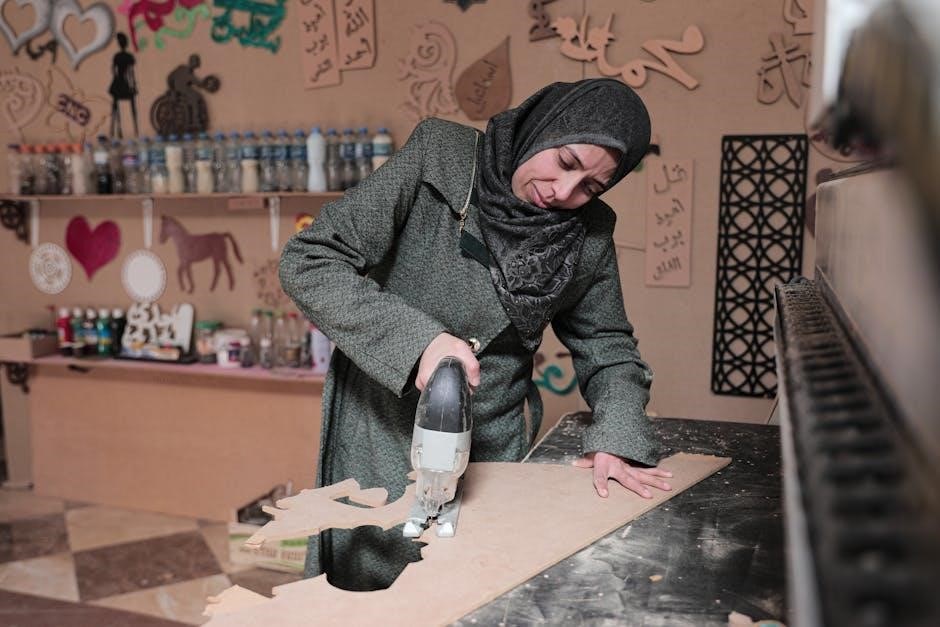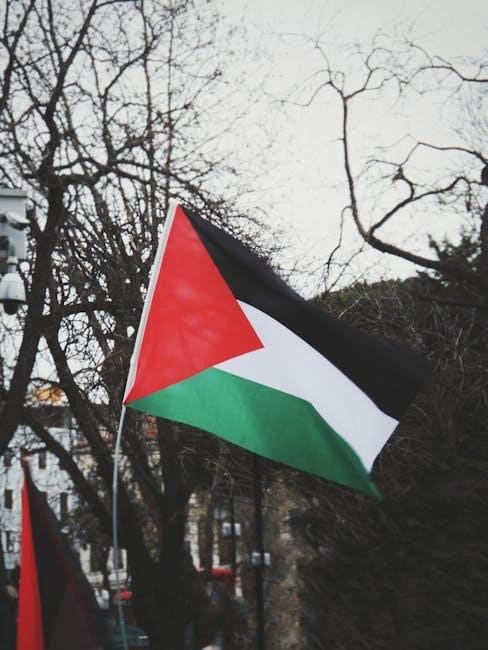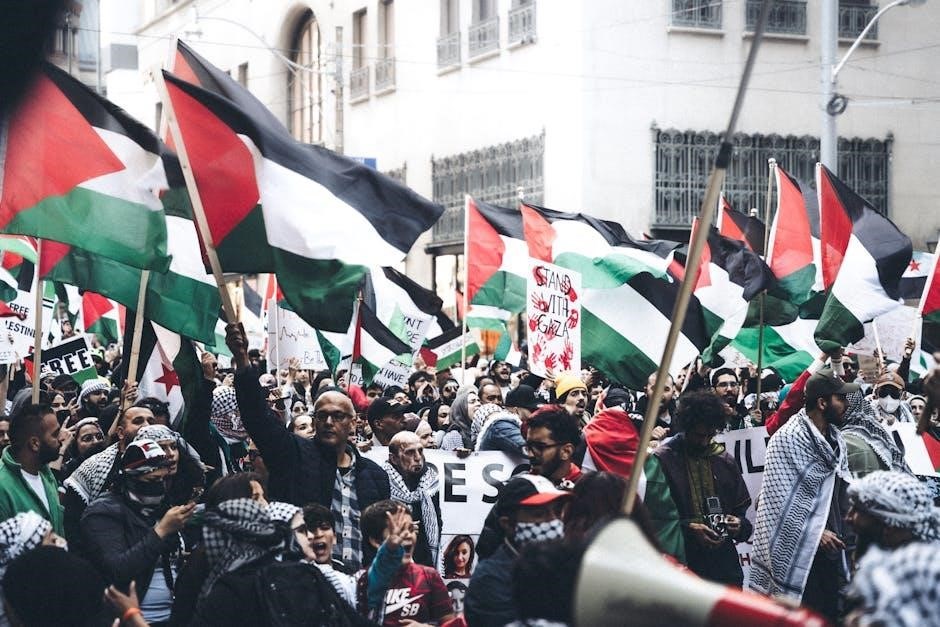Gaza: An Inquest into Its Martyrdom is a meticulously researched book by Norman Finkelstein, examining the humanitarian crisis, political context, and ongoing struggles in Gaza, challenging dominant narratives with a detailed, evidence-based analysis.
Overview of the Book and Its Author
Gaza: An Inquest into Its Martyrdom is a seminal work by Norman Finkelstein, a renowned American political scientist and activist. The book is a meticulously researched examination of the Gaza Strip’s ongoing crisis, drawing on extensive human rights reports and legal documents. Finkelstein, known for his critical perspectives on Israeli policy, delivers a detailed analysis of the region’s suffering under prolonged occupation and blockade. His work challenges dominant narratives, offering a compelling case for justice and accountability. With a forensic approach, Finkelstein uncovers the humanitarian toll and legal implications of the conflict, making the book a vital resource for understanding Gaza’s plight and advocating for its resolution.
Norman Finkelstein’s Perspective on the Gaza Crisis
Norman Finkelstein presents a scathing critique of Israel’s actions in Gaza, arguing that its military campaigns are disproportionate and violate international law. He contends that Israel’s justifications for assaults, such as self-defense, are pretextual and mask its broader strategy of maintaining domination over Palestinians. Finkelstein’s analysis is rooted in extensive human rights reports and legal frameworks, which he uses to expose the humanitarian catastrophe caused by repeated attacks and the suffocating blockade. He also critiques the international community’s complicity in enabling Israel’s impunity. His perspective underscores the moral and legal imperative to hold Israel accountable for its actions and to recognize the rights of Gaza’s oppressed population.

Historical Context of the Gaza Strip

Gaza’s strategic location has made it a contested territory throughout history, from ancient times to its current status as a Palestinian refuge and conflict zone.
The 2014 Assault on Gaza and Its Aftermath
The 2014 assault on Gaza, known as Operation Protective Edge, was a devastating military campaign that resulted in over 2,000 Palestinian deaths, including many civilians. The operation, launched by Israel, aimed to stop rocket attacks by Hamas but caused widespread destruction of infrastructure, displacing hundreds of thousands of Gazans. The aftermath saw a severe humanitarian crisis, with hospitals overwhelmed and essential supplies running low. The blockade of Gaza, tightened by Israel and Egypt, exacerbated the suffering, leaving Gazans in dire conditions. The international community condemned the disproportionate use of force, while Israel defended its actions as self-defense. The assault deepened the cycle of violence and instability in the region.

The 2008-2009 Operation Cast Lead
Operation Cast Lead, launched by Israel in December 2008, was a three-week military campaign in Gaza that resulted in over 1,400 Palestinian deaths, mostly civilians. The offensive aimed to halt Hamas rocket attacks but caused widespread devastation, including schools, hospitals, and residential areas. The use of white phosphorus and other controversial weapons drew international condemnation. Civilians bore the brunt of the assault, with thousands displaced and essential services crippled. Finkelstein critiques Israel’s narrative, arguing the operation was disproportionate and violated international law. The aftermath deepened Gaza’s humanitarian crisis, with the blockade tightening and reconstruction efforts stalled. The operation remains a contentious episode in the Israeli-Palestinian conflict.
Humanitarian Impact of the Conflicts
The humanitarian crisis in Gaza has led to immense civilian casualties, displacement, and suffering, exacerbated by the blockade, affecting healthcare, infrastructure, and daily life for millions.
The Blockade of Gaza and Its Effects on Civilians
The blockade of Gaza, imposed by Israel and Egypt since 2007, has severely restricted the movement of people and goods, leading to widespread humanitarian suffering. Civilians face acute shortages of food, medicine, and fuel, with healthcare systems overwhelmed and infrastructure in ruins. The blockade has crippled Gaza’s economy, causing soaring unemployment and poverty rates. Daily life is marked by limited access to clean water, electricity, and basic necessities. The blockade has been criticized as a form of collective punishment, exacerbating the humanitarian crisis and undermining prospects for peace. Finkelstein’s book highlights how these measures disproportionately affect civilians, particularly children and the elderly, deepening the cycle of despair and desperation in the region.
Civilian Casualties and War Crimes Allegations
The repeated military assaults on Gaza have resulted in devastating civilian casualties, with women, children, and the elderly bearing the brunt of the violence. Finkelstein’s book meticulously documents the disproportionate use of force by Israel, leading to thousands of civilian deaths and injuries. The targeting of residential areas, schools, and hospitals has raised serious allegations of war crimes under international law. The book highlights how such actions have been consistently justified by Israel as self-defense, while evidence points to a pattern of indiscriminate attacks. These findings have sparked calls for accountability, including an International Criminal Court investigation into potential war crimes committed during the conflicts in Gaza.

Political and Legal Implications
Finkelstein’s analysis underscores the legal and political ramifications of Gaza’s plight, highlighting the International Criminal Court’s potential probe into alleged war crimes and regional diplomatic fallout.
International Criminal Court Probe into War Crimes
The International Criminal Court has considered investigating war crimes related to the 2014 Gaza assault, which killed over 2,000 Palestinians. Finkelstein’s book critiques Israel’s self-defense claims, arguing they lack legal and moral justification. He examines the disproportionate use of force and its devastating impact on civilians. The ICC probe highlights the urgency of accountability for alleged violations of international law. Finkelstein’s analysis emphasizes the need to address impunity and justice for victims, making the book a critical resource for understanding the legal dimensions of the Gaza crisis.

Regional and International Reactions to the Crisis
Regional and international reactions to the Gaza crisis have been deeply polarized. Many Arab nations and global advocacy groups condemn Israel’s actions, while others support its right to self-defense. Finkelstein’s book highlights the widespread outrage over civilian casualties and the blockade’s humanitarian toll. International organizations, including the UN, have repeatedly called for ceasefires and investigations into alleged war crimes. Public opinion in countries like Turkey has strongly sided with Palestinians, while Western governments often align with Israel. The book underscores how the crisis has become a focal point for global activism, with solidarity movements demanding justice and accountability for Gaza’s plight.
Norman Finkelstein’s Analysis and Critique

Finkelstein delivers a scathing critique of Israel’s policies in Gaza, challenging its justifications for military actions and highlighting the disparity between rhetoric and reality with meticulous evidence.

Finkelstein’s Arguments Against Israel’s Narrative
Finkelstein challenges Israel’s portrayal of its actions in Gaza, arguing that its military operations are not about security but territorial expansion and political domination. He meticulously examines the 2014 assault and earlier conflicts, such as Operation Cast Lead, to expose the disproportionate use of force. By leveraging human rights reports and international law, Finkelstein dismantles the notion of Israel’s “self-defense,” highlighting the catastrophic humanitarian toll. His critique underscores the blockade’s suffocating impact on civilians and questions the legality of Israel’s actions under global treaties. Finkelstein’s analysis is a powerful counter to Israel’s narrative, advocating for accountability and justice in Gaza’s ongoing struggle.
The Role of Advocacy and Activism in Addressing the Crisis
Finkelstein emphasizes the critical role of advocacy and activism in challenging the status quo and amplifying the voices of Gaza’s oppressed population. He highlights how grassroots movements and international solidarity campaigns have played a pivotal role in countering Israel’s narrative and exposing the humanitarian crisis. By engaging civil society, activists have pressured governments and institutions to address the blockade and war crimes allegations. Finkelstein argues that public awareness and mobilization are essential to ensuring accountability and advancing justice for Gaza. His work serves as a call to action, urging individuals and organizations to advocate for Palestinian rights and challenge systemic injustice.

Gaza: An Inquest into Its Martyrdom has sparked significant debate, with critics praising its rigorous analysis while others contest its critique of Israel’s policies. The book remains a pivotal work in public discourse on Gaza.
The Impact of the Book on Public Discourse
Gaza: An Inquest into Its Martyrdom has significantly influenced public discourse by challenging dominant narratives surrounding the Gaza crisis. Finkelstein’s meticulous research and impassioned critique have sparked intense debates, with many hailing the book as a vital contribution to understanding the humanitarian and political dimensions of the conflict. Critics argue that it polarizes discussions, while supporters praise its ability to bring attention to overlooked realities. The book has also played a role in advocacy efforts, inspiring further activism and discussions about justice and accountability. Its impact extends beyond academia, engaging a broader audience and prompting reflections on the ethical and legal implications of the Gaza situation.
Reviews and Debates Surrounding the Publication
Gaza: An Inquest into Its Martyrdom has sparked significant debate since its release. While some reviewers praise Finkelstein’s meticulous research and impassioned critique of Israel’s policies, others argue that his approach oversimplifies the complexities of the conflict. Neve Gordon, for instance, lauded the book as a “forensic examination” of Gaza’s plight, emphasizing its importance in challenging dominant narratives. However, critics contend that Finkelstein’s arguments can polarize discussions, alienating potential allies. The book has also been criticized for its dense academic style, which some argue limits its accessibility to a broader audience. Despite these critiques, the publication remains a key reference in discussions about Gaza, prompting both admiration and controversy within academic and political circles.
